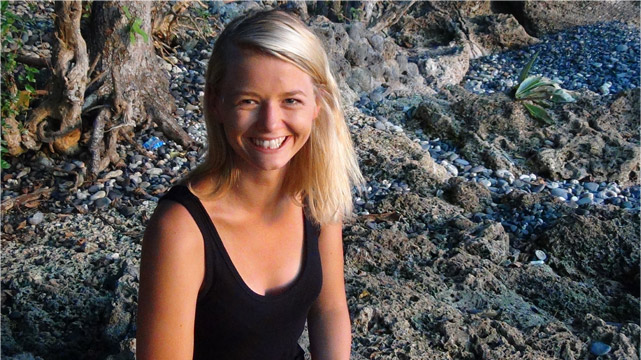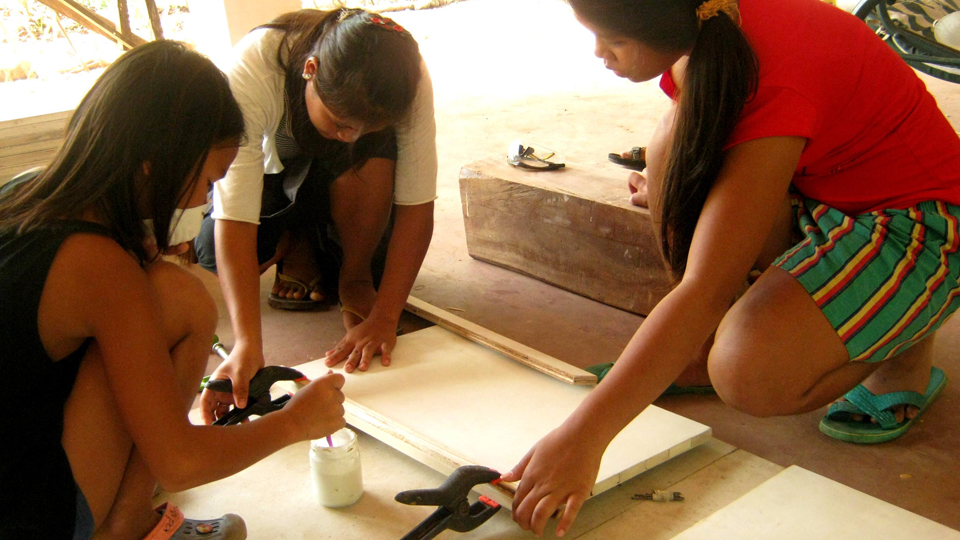As a Volunteer
My weeks at Malisa Home were an unforgettable experience
“When I first came to the Philippines, I experienced a small culture shock – even though I was already prepared for living conditions incomparable to our Western standards.”, Anne-Sophie explains. She was especially struck by the high amount of poverty she encountered on her first bus ride to Malisa Home: “In all the small villages we passed through, little boys and girls would run after our bus, trying to sell us nuts and water.” The political science student experienced the Filipinos’ great hospitality immediately and mentions, “I felt welcome from the very start, and was comfortable in Malisa Home right away,” At first, the girls were shy and kept their distance– but after a few days, they all opened up to Anne-Sophie. Thanks to her previous experiences, the girls got used to Anne-Sophie quickly. These experiences include internships for children’s speech therapists and ergo therapists, and at a kindergarten. Also, Anne-Sophie’s enthusiasm made it a lot easier for the girls to feel safe around her. “Working with children and teenagers is something that has always interested me,” says the student.
Today, a large number of young people actively commit to helping others and take part in social projects. In Germany, 45,000 citizens between the ages of 16 and 27 are currently completing a voluntary year of social engagement (German acronym: FSJ, for “freiwilliges soziales Jahr”). Most of these young people do their voluntary work at hospitals or at institutions for children or the disabled. Around 10,000 young adults every year choose to do voluntary work in another country – just like Anne-Sophie.
For Anne-Sophie, no day was like the other at Malisa Home. With all the activities and projects she did with the girls, she never got bored or felt like she had nothing to do. “We cooked together and went swimming on the weekends. I also helped them clean their rooms,” Anne-Sophie recalls. On weekdays, Anne-Sophie also taught English in the afternoon: “The girls were very eager to learn – I even taught them a little German.”
But Anne-Sophie did not see only the positive side of Malisa Home: “I stood at the girls’ side during court trials.” Those were valuable but also disturbing experiences. Anne-Sophie got to know what was done to the girls by their tormentors – in every detail. “The positive aspect, though, was that the men received punishment for the atrocities they committed,” Anne-Sophie states. She was especially moved by the fate of Richelle, who is now 11 years old. Richelle was raped by her stepfather for the first time when she was just seven years old. The abuse went on for two years. It wasn’t until Richelle’s little brother saw what the stepfather was doing to his sister that this cruelty ended. The boy told other family members about the rapes and Richelle was brought to Malisa Home.
One of Anne-Sophie’s most moving experiences in the Philippines was when she visited the red-light district in Cagayan de Oro, together with other workers from Malisa Home. “Seeing how girls my age or even much younger have to sell their bodies – it was incredibly shocking.
Another thing that impressed Anne-Sophie was how the girls were always happy and active – despite the suffering they had already had to endure in their lives. “This strength and the will to make something better out of their lives, their refusal to give in or give up – that was fascinating,” she says.
There were moments in which Anne-Sophie questioned what she was doing. “Sometimes I didn’t know if my work at Malisa Home really mattered. In the face of so much suffering and poverty, sometimes it felt like what I was doing was just a drop in the bucket,” she recalls. However, when Anne-Sophie sees the happy and grateful faces of the girls and feels their trust in her, she is certain of how valuable her support was – “and this feeling is simply indescribable!”



